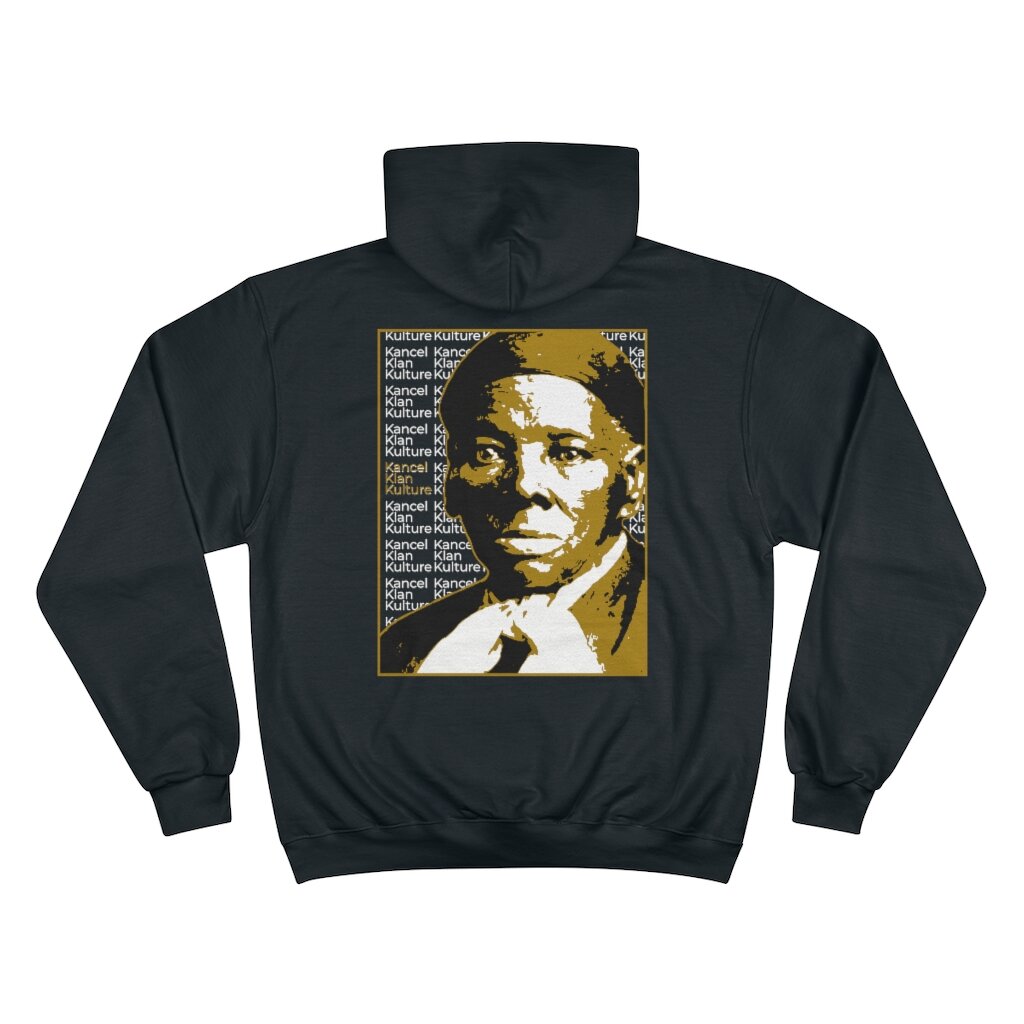No Man's Land Unisex Ultra Cotton Tee
Mary Edwards Walker, M.D. (November 26, 1832 – February 21, 1919), commonly referred to as Dr. Mary Walker, was an American abolitionist, prohibitionist, prisoner of war and surgeon. She is the only woman to ever receive the Medal of Honor.
In 1855, she earned her medical degree at Syracuse Medical College in New York, married and started a medical practice. She attempted to join the Union Army at the outbreak of the American Civil War and was denied. She served as a surgeon at a temporary hospital in Washington, D.C. before being hired by Union Forces and assigned to Army of the Cumberland and later the 52nd Ohio Infantry, becoming the first female surgeon in the US Army. She was captured by Confederate forces after crossing enemy lines to treat wounded civilians and arrested as a spy. She was sent as a prisoner of war to Richmond, Virginia until released in a prisoner exchange.
After the war, she was approved for the Medal of Honor, for her efforts to treat the wounded in battle and across enemy lines during the Civil War. Notably, the award was not expressly given for gallantry in action at that time, and in fact was the only military decoration during the Civil War. Walker is the only woman to receive the medal and one of only eight civilians to receive it. Her name was deleted from the Army Medal of Honor Roll in 1917 (along with over 900 other, male MOH recipients); however, it was restored in 1977. After the war, she was a writer and lecturer supporting the women's suffrage movement until her death in 1919.
Inspired by her parents' novel standard of dressing for health purposes, Walker was infamous for contesting traditional female wardrobe. In 1871, she wrote, "The greatest sorrows from which women suffer to-day are those physical, moral, and mental ones, that are caused by their unhygienic manner of dressing!" She strongly opposed women's long skirts with numerous petticoats, not only for their discomfort and their inhibition to the wearer's mobility but for their collection and spread of dust and dirt. As a young woman, she began experimenting with various skirt-lengths and layers, all with men's trousers underneath. By 1861, her typical ensemble included trousers with suspenders under a knee-length dress with a tight waist and full skirt.
While encouraged by her family, Walker's wardrobe choices were often met with criticism. Once, while a schoolteacher, she was assaulted on her way home by a neighboring farmer and a group of boys, who chased her and attacked her with eggs and other projectiles. Female colleagues in medical school criticized her choices, and patients often gawked at her and teased her. She nevertheless persisted in her mission to reform women's dress. Her view that women's dress should "protect the person, and allow freedom of motion and circulation, and not make the wearer a slave to it" made her commitment to dress reform as great as her zeal for abolitionism. She famously wrote to the women's journal, The Sibyl: A Review of the Tastes, Errors, and Fashions of Society, about her campaign against women's fashion, amongst other things, for its injuries to health, its expense, and its contribution to the dissolution of marriages. Her literature contributed to the spread of her ideas and made her a popular figure amongst other feminists and female physicians.
In 1870, Walker was arrested in New Orleans and mocked by men because she was dressed as a man. The arresting officer Mullahy twisted her arm and asked her if she had ever had sex with a man. Walker was released from custody when she was recognized at Police Court.
This unladylike unisex t-shirt is a tribute to her rebellion against gender roles and comes in a variety of colors. The shoulders are tapped for a good upper-body fit. There are no side seams, ensuring a clean, unbroken flow. The collar has ribbed knitting for improved elasticity. The materials that went into this product are sustainably sourced and economically friendly.
| S | M | L | XL | 2XL | 3XL | 4XL | 5XL | |
|---|---|---|---|---|---|---|---|---|
| Width, in | 18.00 | 20.00 | 22.00 | 24.00 | 26.00 | 28.00 | 30.00 | 32.00 |
| Length, in | 28.00 | 29.00 | 30.00 | 31.00 | 32.00 | 33.00 | 34.00 | 35.00 |
| Sleeve length from center back, in | 15.62 | 17.37 | 18.75 | 20.00 | 21.50 | 22.87 | 24.25 | 25.50 |
.: 100% Cotton (fiber content may vary for different colors)
.: Medium fabric (6.0 oz/yd² (203 g/m²))
.: Classic fit
.: Tear-away label
.: Runs bigger than usual
Mary Edwards Walker, M.D. (November 26, 1832 – February 21, 1919), commonly referred to as Dr. Mary Walker, was an American abolitionist, prohibitionist, prisoner of war and surgeon. She is the only woman to ever receive the Medal of Honor.
In 1855, she earned her medical degree at Syracuse Medical College in New York, married and started a medical practice. She attempted to join the Union Army at the outbreak of the American Civil War and was denied. She served as a surgeon at a temporary hospital in Washington, D.C. before being hired by Union Forces and assigned to Army of the Cumberland and later the 52nd Ohio Infantry, becoming the first female surgeon in the US Army. She was captured by Confederate forces after crossing enemy lines to treat wounded civilians and arrested as a spy. She was sent as a prisoner of war to Richmond, Virginia until released in a prisoner exchange.
After the war, she was approved for the Medal of Honor, for her efforts to treat the wounded in battle and across enemy lines during the Civil War. Notably, the award was not expressly given for gallantry in action at that time, and in fact was the only military decoration during the Civil War. Walker is the only woman to receive the medal and one of only eight civilians to receive it. Her name was deleted from the Army Medal of Honor Roll in 1917 (along with over 900 other, male MOH recipients); however, it was restored in 1977. After the war, she was a writer and lecturer supporting the women's suffrage movement until her death in 1919.
Inspired by her parents' novel standard of dressing for health purposes, Walker was infamous for contesting traditional female wardrobe. In 1871, she wrote, "The greatest sorrows from which women suffer to-day are those physical, moral, and mental ones, that are caused by their unhygienic manner of dressing!" She strongly opposed women's long skirts with numerous petticoats, not only for their discomfort and their inhibition to the wearer's mobility but for their collection and spread of dust and dirt. As a young woman, she began experimenting with various skirt-lengths and layers, all with men's trousers underneath. By 1861, her typical ensemble included trousers with suspenders under a knee-length dress with a tight waist and full skirt.
While encouraged by her family, Walker's wardrobe choices were often met with criticism. Once, while a schoolteacher, she was assaulted on her way home by a neighboring farmer and a group of boys, who chased her and attacked her with eggs and other projectiles. Female colleagues in medical school criticized her choices, and patients often gawked at her and teased her. She nevertheless persisted in her mission to reform women's dress. Her view that women's dress should "protect the person, and allow freedom of motion and circulation, and not make the wearer a slave to it" made her commitment to dress reform as great as her zeal for abolitionism. She famously wrote to the women's journal, The Sibyl: A Review of the Tastes, Errors, and Fashions of Society, about her campaign against women's fashion, amongst other things, for its injuries to health, its expense, and its contribution to the dissolution of marriages. Her literature contributed to the spread of her ideas and made her a popular figure amongst other feminists and female physicians.
In 1870, Walker was arrested in New Orleans and mocked by men because she was dressed as a man. The arresting officer Mullahy twisted her arm and asked her if she had ever had sex with a man. Walker was released from custody when she was recognized at Police Court.
This unladylike unisex t-shirt is a tribute to her rebellion against gender roles and comes in a variety of colors. The shoulders are tapped for a good upper-body fit. There are no side seams, ensuring a clean, unbroken flow. The collar has ribbed knitting for improved elasticity. The materials that went into this product are sustainably sourced and economically friendly.
| S | M | L | XL | 2XL | 3XL | 4XL | 5XL | |
|---|---|---|---|---|---|---|---|---|
| Width, in | 18.00 | 20.00 | 22.00 | 24.00 | 26.00 | 28.00 | 30.00 | 32.00 |
| Length, in | 28.00 | 29.00 | 30.00 | 31.00 | 32.00 | 33.00 | 34.00 | 35.00 |
| Sleeve length from center back, in | 15.62 | 17.37 | 18.75 | 20.00 | 21.50 | 22.87 | 24.25 | 25.50 |
.: 100% Cotton (fiber content may vary for different colors)
.: Medium fabric (6.0 oz/yd² (203 g/m²))
.: Classic fit
.: Tear-away label
.: Runs bigger than usual
Mary Edwards Walker, M.D. (November 26, 1832 – February 21, 1919), commonly referred to as Dr. Mary Walker, was an American abolitionist, prohibitionist, prisoner of war and surgeon. She is the only woman to ever receive the Medal of Honor.
In 1855, she earned her medical degree at Syracuse Medical College in New York, married and started a medical practice. She attempted to join the Union Army at the outbreak of the American Civil War and was denied. She served as a surgeon at a temporary hospital in Washington, D.C. before being hired by Union Forces and assigned to Army of the Cumberland and later the 52nd Ohio Infantry, becoming the first female surgeon in the US Army. She was captured by Confederate forces after crossing enemy lines to treat wounded civilians and arrested as a spy. She was sent as a prisoner of war to Richmond, Virginia until released in a prisoner exchange.
After the war, she was approved for the Medal of Honor, for her efforts to treat the wounded in battle and across enemy lines during the Civil War. Notably, the award was not expressly given for gallantry in action at that time, and in fact was the only military decoration during the Civil War. Walker is the only woman to receive the medal and one of only eight civilians to receive it. Her name was deleted from the Army Medal of Honor Roll in 1917 (along with over 900 other, male MOH recipients); however, it was restored in 1977. After the war, she was a writer and lecturer supporting the women's suffrage movement until her death in 1919.
Inspired by her parents' novel standard of dressing for health purposes, Walker was infamous for contesting traditional female wardrobe. In 1871, she wrote, "The greatest sorrows from which women suffer to-day are those physical, moral, and mental ones, that are caused by their unhygienic manner of dressing!" She strongly opposed women's long skirts with numerous petticoats, not only for their discomfort and their inhibition to the wearer's mobility but for their collection and spread of dust and dirt. As a young woman, she began experimenting with various skirt-lengths and layers, all with men's trousers underneath. By 1861, her typical ensemble included trousers with suspenders under a knee-length dress with a tight waist and full skirt.
While encouraged by her family, Walker's wardrobe choices were often met with criticism. Once, while a schoolteacher, she was assaulted on her way home by a neighboring farmer and a group of boys, who chased her and attacked her with eggs and other projectiles. Female colleagues in medical school criticized her choices, and patients often gawked at her and teased her. She nevertheless persisted in her mission to reform women's dress. Her view that women's dress should "protect the person, and allow freedom of motion and circulation, and not make the wearer a slave to it" made her commitment to dress reform as great as her zeal for abolitionism. She famously wrote to the women's journal, The Sibyl: A Review of the Tastes, Errors, and Fashions of Society, about her campaign against women's fashion, amongst other things, for its injuries to health, its expense, and its contribution to the dissolution of marriages. Her literature contributed to the spread of her ideas and made her a popular figure amongst other feminists and female physicians.
In 1870, Walker was arrested in New Orleans and mocked by men because she was dressed as a man. The arresting officer Mullahy twisted her arm and asked her if she had ever had sex with a man. Walker was released from custody when she was recognized at Police Court.
This unladylike unisex t-shirt is a tribute to her rebellion against gender roles and comes in a variety of colors. The shoulders are tapped for a good upper-body fit. There are no side seams, ensuring a clean, unbroken flow. The collar has ribbed knitting for improved elasticity. The materials that went into this product are sustainably sourced and economically friendly.
| S | M | L | XL | 2XL | 3XL | 4XL | 5XL | |
|---|---|---|---|---|---|---|---|---|
| Width, in | 18.00 | 20.00 | 22.00 | 24.00 | 26.00 | 28.00 | 30.00 | 32.00 |
| Length, in | 28.00 | 29.00 | 30.00 | 31.00 | 32.00 | 33.00 | 34.00 | 35.00 |
| Sleeve length from center back, in | 15.62 | 17.37 | 18.75 | 20.00 | 21.50 | 22.87 | 24.25 | 25.50 |
.: 100% Cotton (fiber content may vary for different colors)
.: Medium fabric (6.0 oz/yd² (203 g/m²))
.: Classic fit
.: Tear-away label
.: Runs bigger than usual






















